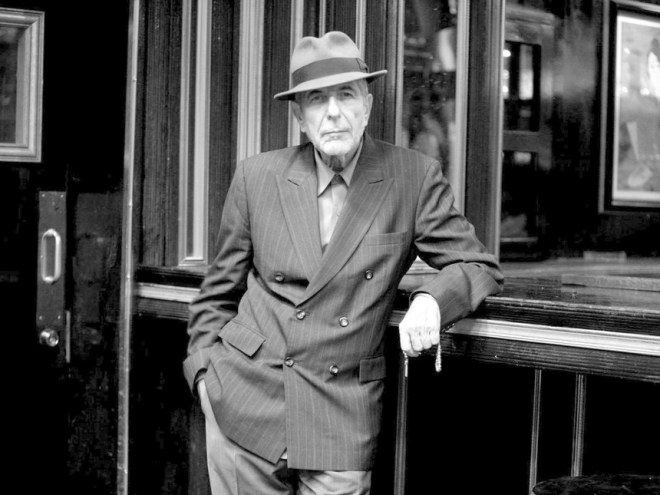Last Updated on July 27, 2023
Leonard Cohen, the iconic singer-songwriter known for his soulful music and poetic lyrics, was not only a master of the musical arts but also a prolific writer of poems and novels. Beyond his melodic tunes and haunting voice, Cohen’s talent extended to the written word, showcasing his multifaceted creativity and depth of expression.
Leonard Cohen’s early years and his passion for writing
Leonard Cohen, known primarily as a musician, had a deep passion for writing from a young age. His early years were marked by a love for literature and poetry, which eventually led him to pursue a career as a writer.
- Cohen’s interest in writing began in his teenage years, where he would spend hours reading and writing poetry.
- He was greatly influenced by the works of poets such as Federico Garcia Lorca and W.B. Yeats.
- Cohen’s love for writing continued to grow throughout his college years, where he studied English literature.
- During this time, he began to experiment with different writing styles and themes, exploring the depths of human emotions and experiences.
Leonard Cohen’s early years and his passion for writing laid the foundation for his later success as both a poet and a novelist. His dedication to the craft and his unique perspective on life continue to inspire aspiring writers and musicians alike.
The publication of Leonard Cohen’s first poetry collection
Leonard Cohen’s journey as a writer began with the publication of his first poetry collection. This significant milestone in his career showcased his poetic prowess and set the stage for his future literary endeavors. The collection, titled “Let Us Compare Mythologies”, was published in 1956 when Cohen was just 22 years old.
In this collection, Cohen explored themes of love, spirituality, and the human condition. His words resonated with readers, capturing their hearts and minds with his profound insights and lyrical beauty. The publication of “Let Us Compare Mythologies” marked the emergence of a talented poet who would go on to leave an indelible mark on the literary world.
Leonard Cohen’s transition from poetry to novels
Leonard Cohen, known primarily for his music, also had a successful career as a writer of poetry and novels. After the publication of his first poetry collection, Cohen began to explore the world of fiction. His transition from poetry to novels was a natural progression for him, as both forms of writing allowed him to delve deep into the human experience.
Cohen’s first novel, “The Favorite Game,” was published in 1963 and drew heavily from his own life experiences. The novel explored themes of love, loss, and self-discovery, and showcased Cohen’s unique writing style. His second novel, “Beautiful Losers,” published in 1966, further solidified his reputation as a talented writer.
Cohen’s novels were characterized by their poetic language, introspective narratives, and exploration of existential themes. His writing style was often described as lyrical and evocative, drawing readers into the emotional landscapes of his characters.
While Cohen’s novels did not achieve the same level of commercial success as his music, they were highly regarded by critics and had a lasting impact on the literary world. His ability to seamlessly transition between different artistic mediums showcased his versatility as an artist.
Analysis of Leonard Cohen’s most notable novels
Leonard Cohen’s transition from poetry to novels marked a significant shift in his writing career. He delved into the world of fiction and created several notable works that showcased his unique storytelling abilities. Here are some of his most notable novels:
- “Beautiful Losers”: Published in 1966, this novel explores themes of love, spirituality, and identity. It is known for its experimental narrative style and provocative content.
- “The Favorite Game”: Cohen’s debut novel, published in 1963, is a semi-autobiographical coming-of-age story. It delves into the complexities of youth, love, and artistic pursuits.
- “Death of a Ladies’ Man”: Released in 1978, this novel tells the story of a womanizer named Samuel who grapples with his own mortality. It explores themes of love, desire, and the fear of death.
- “Beautiful Losers”: Published in 1966, this novel explores themes of love, spirituality, and identity. It is known for its experimental narrative style and provocative content.
- “The Book of Longing”: Released in 2006, this novel combines poetry, prose, and drawings. It reflects on Cohen’s personal experiences, relationships, and spiritual journey.
These novels showcase Leonard Cohen’s ability to captivate readers with his lyrical prose, introspective characters, and thought-provoking themes. Each work offers a unique glimpse into the human condition and leaves a lasting impact on its readers.
6. Leonard Cohen’s unique writing style and themes in his works
Leonard Cohen’s writing style is characterized by its depth, introspection, and poetic language. His works often explore themes of love, spirituality, and the human condition. Here are some key aspects of his unique writing style:
- Poetic language: Cohen’s background as a poet is evident in his prose. His writing is filled with vivid imagery, metaphors, and lyrical beauty.
- Introspection: Cohen’s works delve into the depths of the human psyche, exploring emotions, desires, and existential questions. His introspective approach adds a profound and philosophical dimension to his writing.
- Emotional honesty: Cohen’s writing is known for its raw and honest portrayal of human emotions. He bares his soul in his works, expressing vulnerability, longing, and heartache.
- Spirituality: Cohen’s works often touch upon themes of spirituality and transcendence. He explores the search for meaning and the connection between the divine and the human.
- Social commentary: Cohen’s writing also reflects his observations and commentary on society. He addresses issues such as war, politics, and social injustice, offering thought-provoking insights.
Overall, Leonard Cohen’s unique writing style and themes make his works a captivating exploration of the human experience, leaving a lasting impact on readers.
The Critical Reception and Impact of Leonard Cohen’s Novels
Leonard Cohen’s foray into novel writing was met with mixed reviews from critics and readers alike. His first novel, “The Favorite Game,” published in 1963, received praise for its introspective and poetic prose. Critics admired Cohen’s ability to capture the essence of youth and the struggles of self-discovery. However, some found the novel to be self-indulgent and lacking in plot.
Cohen’s second novel, “Beautiful Losers,” published in 1966, was met with even more controversy. While some hailed it as a masterpiece of experimental fiction, others criticized its explicit content and unconventional narrative structure. The novel’s exploration of sexuality, spirituality, and identity challenged societal norms and pushed the boundaries of literature.
Despite the mixed reception, Leonard Cohen’s novels had a lasting impact on the literary world. His unique blend of poetry and prose, coupled with his exploration of existential themes, influenced a generation of writers. Cohen’s novels continue to be studied and analyzed for their artistic merit and contribution to Canadian literature.
8. Leonard Cohen’s return to poetry in his later years
After a successful career as a musician and novelist, Leonard Cohen surprised his fans by returning to his roots as a poet in his later years. Despite his fame and success in other artistic endeavors, Cohen never abandoned his love for poetry. In fact, he continued to write poems throughout his life, even when he was primarily focused on his music and novels.
In 2006, Cohen released his first poetry collection in over 20 years, titled “Book of Longing.” This collection showcased Cohen’s poetic prowess and his ability to capture the complexities of love, spirituality, and the human experience. The poems in “Book of Longing” were deeply introspective and reflected Cohen’s own journey through life.
Cohen’s return to poetry was met with critical acclaim, and the collection became a bestseller. It was praised for its lyrical beauty, emotional depth, and profound insights. Many fans and critics saw “Book of Longing” as a testament to Cohen’s enduring talent and his ability to connect with readers on a profound level.
Leonard Cohen’s return to poetry in his later years further solidified his legacy as a versatile artist and a master of words. His ability to seamlessly transition between different artistic mediums is a testament to his immense talent and creativity.
The legacy of Leonard Cohen as a writer and musician
Leonard Cohen’s impact as a writer and musician is undeniable. Throughout his career, he showcased his multifaceted talent, not only through his music but also through his poetry and novels. Cohen’s ability to seamlessly transition between different art forms is a testament to his creativity and versatility.
As a writer, Cohen’s work was characterized by his unique writing style and profound themes. His poetry collections, such as “Let Us Compare Mythologies” and “The Spice-Box of Earth,” showcased his ability to capture the complexities of human emotions and experiences. His novels, including “Beautiful Losers” and “The Favourite Game,” delved into existential questions and explored the depths of human relationships.
Cohen’s writing style was marked by its simplicity and elegance. He had a knack for using words to evoke powerful emotions and create vivid imagery. His works often touched on themes of love, spirituality, and the human condition, resonating with readers on a deep level.
The impact of Cohen’s writing cannot be overstated. His works have inspired countless artists and continue to be celebrated for their timeless beauty. Cohen’s legacy as a writer and musician will forever be remembered, solidifying his place as one of the most influential artists of his generation.
Leonard Cohen’s Enduring Influence as a Versatile Artist
Throughout his career, Leonard Cohen proved himself to be a true Renaissance man, excelling not only in music but also in the realms of poetry and novels. His multifaceted talent and unique writing style have left an indelible mark on the artistic world.
From his early years, Cohen displayed a passion for writing that would shape his entire career. His first poetry collection, published in his early twenties, showcased his lyrical prowess and set the stage for his future literary endeavors.
Transitioning from poetry to novels, Cohen continued to captivate audiences with his thought-provoking storytelling. His most notable novels, characterized by their introspective themes and rich character development, solidified his reputation as a masterful writer.
Cohen’s writing style, characterized by its poetic and introspective nature, resonated deeply with readers and critics alike. His novels received critical acclaim and left a lasting impact on the literary landscape.
In his later years, Cohen returned to his poetic roots, further cementing his legacy as a versatile artist. His poignant and evocative poetry continued to touch the hearts of audiences around the world.
Leonard Cohen’s enduring influence as a versatile artist cannot be overstated. His ability to seamlessly transition between music, poetry, and novels is a testament to his immense talent and creative genius.
Discover the lesser-known side of Leonard Cohen as a poet and novelist, and explore his enduring influence as a versatile artist.
About The Author

Alison Sowle is the typical tv guru. With a social media evangelist background, she knows how to get her message out there. However, she's also an introvert at heart and loves nothing more than writing for hours on end. She's a passionate creator who takes great joy in learning about new cultures - especially when it comes to beer!

